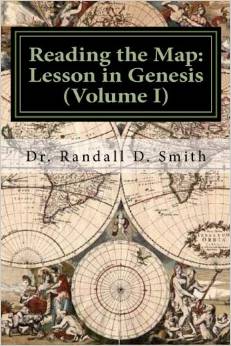 For any thoughtful young woman, expecting their first baby can be very exciting, but also a little scary. How do I know that is true? Well, for one thing, I am a dad. But even if I weren’t, all I would have to know is that “What to Expect When You’re Expecting” is a perennial New York Times bestseller and was rated by “USA Today” as one of the twenty-five most “influential books of the past quarter century”. Some authorities report that more than 90% of pregnant American women have picked up this book for a look, with over 14.5 million copies in print in its four editions. It has spun off a website and a whole genre of other works in the subject area. Obviously, the author struck a nerve with child bearing women, and that nerve was apprehension and uncertain expectation.
For any thoughtful young woman, expecting their first baby can be very exciting, but also a little scary. How do I know that is true? Well, for one thing, I am a dad. But even if I weren’t, all I would have to know is that “What to Expect When You’re Expecting” is a perennial New York Times bestseller and was rated by “USA Today” as one of the twenty-five most “influential books of the past quarter century”. Some authorities report that more than 90% of pregnant American women have picked up this book for a look, with over 14.5 million copies in print in its four editions. It has spun off a website and a whole genre of other works in the subject area. Obviously, the author struck a nerve with child bearing women, and that nerve was apprehension and uncertain expectation.
What we expect from an experience has much to do with how we pass through that experience. I mention the book because the author obviously felt that explaining the birthing process and offering insights and testimony from those who have passed through the process would be incredibly helpful to one who is facing the experience. What is true in the process of birthing a child is also true in the process of birthing a church and a Gospel movement in a pagan world. The book of Acts offers the “What to Expect When You’re Expecting New Births in the Kingdom” – and has been a bestseller for centuries! The book includes a record of “men on a mission from God” to reach into a pagan world, armed with God’s Spirit and power, effectively fighting against God’s adversary, the Devil. It isn’t just a “nuts and bolts” look at outreach and church planting; it is a very personal, sometimes remarkably painful reflection of frail men on an exalted mission. It isn’t the men you should be impressed with – but the gains God makes through, and always in spite of, these men as the Gospel powerfully changed lives.
If we are to see paganism again pressed by the power of God – we must know what we are “up against” in the spiritual world. We must know what to anticipate and how to prepare. We must be ready as individual believers for Satan’s counterattack to the Gospel in our personal lives (where temptation can derail us), in the privacy of our own homes (where interpersonal strife can easily develop), in the ministry of our churches (where a group of natural hypocrites must come together and be transformed by renewing of our minds and hearts) and in our communities (where the Gospel is generally ignored, except when it is attacked). I am convinced that is why God gave to us the Book of Acts.
Key Principle: God’s Word can help us reset expectations so that we can navigate life thoughtfully and positively as individuals and as a Gospel movement.
In this lesson we move from the early steps and preparations of the Apostle Paul to his first team ministry outreach – sent by the Spirit of God to unbelieving people who did not yet have any local church witness. That was the essence of Barnabas and Paul’s job – to establish the church in new places by preaching the Gospel. They were to arrive, get an audience with local people (which began in the local synagogue of each town) and present the truth that Jesus replaced the atonement system of the Hebrew Scriptures – the killing of animals in sacrifices and the need to continually maintain one’s right standing before God by regular participation in the sacrificial ceremonies. God had done a new thing that was GOOD NEWS, called “the Gospel”. The message of the Gospel was that a full, complete and everlasting JUSTIFICATION (a permanent declaration of full payment for sin) before God could now be obtained by the surrender of one’s heart and life to Jesus Christ. Because Jesus Himself bore the payment for all of our sins, Jesus could cancel the debt anyone had with God. As a perfect sacrifice, Jesus offered a “one size fits all” payment that need not be repeated in any further installments, nor amended in any way.
The Good News was, and still IS this: When a man, woman or child recognizes they are in need of a relationship with a Holy God, but are not righteous in and of themselves, they are able to ask Jesus to take His perfect payment (made in His own blood) to wash away their sin. All the remains of the breach between God and their heart is erased, and God willingly dwells within the life surrendered. When one asks for this, Jesus has promised in the Bible He would apply the payment and cancel their “rebellion caused” debt – and God acknowledged His agreement with His Son’s sacrifice by raising Jesus from the dead. That was the essence of the Good News, and is the same Gospel that true followers of Jesus offer to a lost world today. It isn’t a “get out of jail free” card – because the Gospel is costly – but not to the sinner. The good news of the Gospel is that I cannot pay, but Jesus already DID PAY.
The Prayer Room Pre-launch
Go back in the room where the first declared and intention outreach mission began in the first century. The record of what happened should help us set our expectations as people who follow God. I warn you, the record isn’t what some are saying. It isn’t the story of how people came to Jesus and everything got easy… not at all. Let’s look at the beginning of Acts 13…
Acts 13:1 Now there were at Antioch, in the church that was [there], prophets and teachers: Barnabas, and Simeon who was called Niger, and Lucius of Cyrene, and Manaen who had been brought up with Herod the tetrarch, and Saul. 2 While they were ministering to the Lord and fasting, the Holy Spirit said, “Set apart for Me Barnabas and Saul for the work to which I have called them.” 3 Then, when they had fasted and prayed and laid their hands on them, they sent them away. 4 So, being sent out by the Holy Spirit, they went down to Seleucia and from there they sailed to Cyprus.
The mission started with the leadership of a local church body in a prayer meeting. These were mature men. They were dedicated, reputable followers of Jesus that knew the source of spiritual power – from God’s throne. Look at the names of the other men kneeling beside Paul:
• Barnabas was a Levitical Jew from Cyprus (Acts 4:36) who was actually named Joseph, but was more known as “Mr. Encouragement” than his family name!
• Simeon (Shim’on) was a Jew who was likely a black man from North African descent, and may have been the Cyrenian who carried the Cross of Jesus (though this is not certain). What we can assume is that he was a traveler in the Empire, and used his Latin name “Niger”.
• Lucius of Cyrene may have been another black man, but many Cyrenians were transplants from the Italic peninsula, so we aren’t sure.
• Manaen is a man we believe we know more about. The text reminds us that he was “brought up with Herod the Tetrarch (called Herod Antipas in the Gospels). He appears to have been raised by the mother of Archelaus and Antipas, both of whom were schooled in Rome as children. By the time of this prayer meeting, both “princes” were in exile to the Rhone region, banished from their former post. If Manaen were here, he’d be able to tell us some very interesting things about the Herodian dynasty. The fact is, though, he was a man of background and means, and now he was following Christ.
These were men of prayer. I cannot say it loud and long enough… no church and no Christian will ever become effective in the battle without prayer. It isn’t a distraction and it isn’t a luxury. When troubles come, prayer meetings fill… but in times we perceive “success” we become lax about the spiritual wrestling that happens from the knees.
These were also men of service. They didn’t just “come to church to get something out of it” – they came, that day, to “minister to the Lord”. They fasted and fixed their gaze on Heaven. There were no forms and programs – there was prayer and fasting. The forms may now be necessary, and the programs may attract the less fervent – but none of it replaces the prayer of godly people.
These were obedient men. They heard from God, and they followed God’s Word. When God told them who to send and where, they fasted more, prayed more (in case God had more to add), and after some time they publicly placed on Barnabas and Saul (Paul) the responsibility and public symbol of a call to a specific ministry.
Let’s stop for a moment and ask what we can learn from their experience. Could it be that our expectation for ministry ought to be like their experience? When serious believers seek God in fixed times of prayer and fasting might we be assured that God would direct the movement forward? Can we expect that God will move because we ASK Him to direct? Did not Jesus tell His disciples in the “Sermon on the Mount” (Matthew 5-7) that their Father knew what they needed and would not give them something else when they took the time to ask Him? Let’s say it directly…
Expectation One: We should expect to need direction and supply from God. We will not always know what to do next in life or ministry – but God gave us prayer and our solution.
Salamis Proclamation
Acts 13:5 When they reached Salamis, they [began] to proclaim the word of God in the synagogues of the Jews; and they also had John as their helper.
Barnabas and Saul left Antioch and walked the fifteen miles to board a ship docked in nearby Seleucia that was bound for Barnabas’ native island – Cyprus. They sailed about 100 miles, and harbored in at Salamis. For their time in that city, Luke (the author) offers only one verse – but it is not unimportant to our understanding. Look closely, and we can see three important details:
• When they arrived, the script they followed was the Word of God.
• They began in the synagogue, because that is where people with a background in atonement would be gathered, and the Gospel would make more sense in that audience. They didn’t start at the pagan end of town – but at the place where people had some comprehension of the God of Abraham and His Word.
• They went as a team, but they added a younger helper. We have no information that leads us to conclude that God told them to seek out John Mark, but when they got to Cyprus, they added him to their team (probably at the behest of his uncle Barnabas).
Can you recognize how that informs our expectations of ministry? Let me suggest that we would be wisest to stay on script by preaching and teaching God’s Word and not our political thoughts and practical musings. We all love a good story, and often they are helpful to illustrate a truth – but no church can survive on a Christian “Mark Twain” that offers a sermon of stories with little of God’s Word. It may keep the crowd emotionally happy, but it will not grow them to be spiritually strong.
Expectation Two: We must anticipate building a team, seeking the spiritually sensitive, and giving a message from the Word of God.
Paphos Public Distractions
Barnabas, Paul and John Mark didn’t stay long in Salamis, but made the more than 100 mile journey by Roman road to Paphos, where Luke pauses to add a story of the conversion of the Roman Proconsul Lucius Sergius Paulus:
Acts 13:6 When they had gone through the whole island as far as Paphos, they found a magician, a Jewish false prophet whose name was Bar-Jesus, 7 who was with the proconsul, Sergius Paulus, a man of intelligence. This man summoned Barnabas and Saul and sought to hear the word of God. 8 But Elymas the magician (for so his name is translated) was opposing them, seeking to turn the proconsul away from the faith. 9 But Saul, who was also [known as] Paul, filled with the Holy Spirit, fixed his gaze on him, 10 and said, “You who are full of all deceit and fraud, you son of the devil, you enemy of all righteousness, will you not cease to make crooked the straight ways of the Lord? 11 “Now, behold, the hand of the Lord is upon you, and you will be blind and not see the sun for a time.” And immediately a mist and a darkness fell upon him, and he went about seeking those who would lead him by the hand. 12 Then the proconsul believed when he saw what had happened, being amazed at the teaching of the Lord.
Barnabas, Paul and John Mark came for the expressed purpose to share the Gospel and build discipleship circles that would initiate local churches. God sent them – that was clear in the text. Yet, the enemy didn’t LEAVE because he heard the message of the Gospel was about to pour in – he set up confusion and conflict ahead of their arrival. That isn’t unusual, it is the norm.
Expectation Three: We should anticipate the confusing words of the deceiver to try to “douse” those we attempt to reach. Sometimes outreach will include direct answers to those who are deliberately being deceptive.
Some Christians believe that one can only “play nicely” with others in their presentation – and certainly believers are to strive for peace. At the same time, failing to contend for the hearts of those who are lost is surrender to deception.
When our schools insist on representing naturalism as the only truth, and wrap it in a scientific lab coat – we will respond. We will tell them that they are betraying the foundation of the country in which we have enjoyed mutual blessing. Our fathers knew that our rights didn’t come from government, but we God given an inalienable – they said so. “It is the duty of all nations to acknowledge the providence of Almighty God, to obey His will, to be grateful for His benefits, and humbly to implore His protection and favor,” said George Washington. Yet that won’t be at the core of our argument – the Bible will. We will continue to press for the truth of the Gospel and the place of the Word in the lives of students. Teaching Western history while ignoring the influence of the Scriptures is a rouse strategically planned in modern education. We don’t want conflict, but we won’t surrender the Word for a peace that damns those without the truth. Expecting no conflict in sharing truth ignores the story God presented in the Book of Acts.
Perga Disappointments
From Paphos, the men set sail almost due north for a distance of about 175 miles to the landing near Perga, and then made their way into the town:
Acts 13:13 Now Paul and his companions put out to sea from Paphos and came to Perga in Pamphylia; but John left them and returned to Jerusalem.
Yet, later Paul recalled the first entry to the region of greater Galatia as one in which he struggled physically (some scholars believe the Galatian letter embraced the entire area of central Anatolia, and there is ample evidence that he named the region but meant a broader territory):
Galatians 4:13 but you know that it was because of a bodily illness that I preached the gospel to you the first time; 14 and that which was a trial to you in my bodily condition you did not despise or loathe, but you received me as an angel of God, as Christ Jesus [Himself]. 15 Where then is that sense of blessing you had? For I bear you witness that, if possible, you would have plucked out your eyes and given them to me.
The mission team went through a time of division, and (it appears) physical weakness. I believe that John Mark didn’t simply leave because he got home sick. I don’t think he was simply young and inexperienced and unaccustomed to the size of the Taurus mountains the team was about to embark on crossing. Those things may have been true, but I don’t think any of them were the deciding factor for why John left a hole in the team that later ruptured into an argument that broke the team up.
What was his problem? I think Paul said tough things to Elymas, and that surprised John Mark, and may have rattled him a bit. I think that Paul got sick and wasn’t doing well, and that eroded the confidence in the team that John began with. That may be why Paul reacted so strongly later, just as a team for the second mission journey was coming together. Coming inland, Barnabas and Paul were hurt by the loss of John Mark – and it got between their relationship.
Expectation Four: We shouldn’t anticipate a team without disappointment and conflict – that is part of God’s story from the first journey.
People on the team will let us down, and we must be ready for it. Our hope is in the Lord and His Word, not in the vessels that transport it to the world.
Pisidian Preaching
Moving inland, Barnabas and Paul made their way to Pisidian Antioch, gained a large audience, and began to preach to the Jews of that town. The account is long, so we will offer an overview of Paul’s six point message:
Acts 13:14 But going on from Perga, they arrived at Pisidian Antioch, and on the Sabbath day they went into the synagogue and sat down. 15 After the reading of the Law and the Prophets the synagogue officials sent to them, saying “Brethren, if you have any word of exhortation for the people, say it.” 16 Paul stood up, and motioning with his hand said, “Men of Israel, and you who fear God, listen:
1: God was at work in our collective Jewish past (13:17-22)
• He chose us and set us free from Egypt (17)
• He brought us through the wilderness (18)
• He cleared Canaanites off the land of our inheritance (19)
• He provided Judges until Samuel (20)
• He provided Kings – including Saul and David (21-22a)
• He gave a promise to King David (22b)
2: God is at work in our day (13:23-26)
• He sent His promised Savior – raising Him from the dead (23)
• He sent the announcer before Him – John the Baptizer (24-25)
• He sent US to YOU – to announce the message of salvation (26)
3: You cannot look to Jerusalem for the answer (13:27-32)
• They refused Him and rejected Him (27)
• They gave Him to Romans for execution (28)
• He was killed, but He was raised (29)!
• God was at work in that tomb (30)
• Many people witnessed Him risen and walking among us (31)
• We declare HE was the delivered of the promise of God (32)
4: You can confirm our message in the Scriptures (13:33-37)
5: The message is the total forgiveness of sins to those who believe – atonement has been replaced by justification (13:38-39)
6: Don’t walk past your opportunity to respond to God’s message (13:40-41).
From the moment of the delivery of their message, response and reaction began. Gentile proselytes (followers of Judaism who were not born Jews) begged for more information and kept following Paul and Barnabas (13:42-43). Unbelieving Jews resisted, became jealous and argumentative (13:45) and pushed Paul and Barnabas to spend more time with Gentile converts until they were pushed out of the area (13:46-51). The missionaries left behind in the region followers of Jesus who were joyful in spite of the pressures (13:52).
Expectation Five: We should not measure the work too early. Some of our engagements are to plant seed and will not bear the fruit we anticipate quickly. Our work is faithfulness, God’s work is found in the results.
Iconium Plots
They pushed on to Iconium:
Acts 14:1 In Iconium they entered the synagogue of the Jews together, and spoke in such a manner that a large number of people believed, both of Jews and of Greeks. 2 But the Jews who disbelieved stirred up the minds of the Gentiles and embittered them against the brethren. 3 Therefore they spent a long time [there] speaking boldly [with reliance] upon the Lord, who was testifying to the word of His grace, granting that signs and wonders be done by their hands. 4 But the people of the city were divided; and some sided with the Jews, and some with the apostles. 5 And when an attempt was made by both the Gentiles and the Jews with their rulers, to mistreat and to stone them, 6 they became aware of it and fled to the cities of Lycaonia, Lystra and Derbe, and the surrounding region; 7 and there they continued to preach the gospel.
Just when they were getting real response by a larger crowd, the opposition rose and became personal and dangerous. God empowered them with signs and wonders, but they knew when a plot was uncovered they should get out of town.
Expectation Six: Just because we carry God’s Word doesn’t mean we go in unwise of the atmosphere.
Boldness is not stupidity. We must be wise as serpents and harmless as doves. There is no real ministry without conflict – because the enemy will not surrender the field of battle without a fight.
Lystra Confusion and Anger
The went on from Iconium to Lystra and Derbe. Luke picked up one anecdote from the trip that summarized the problems encountered:
Acts 14:8 At Lystra a man was sitting who had no strength in his feet, lame from his mother’s womb, who had never walked. 9 This man was listening to Paul as he spoke, who, when he had fixed his gaze on him and had seen that he had faith to be made well, 10 said with a loud voice, “Stand upright on your feet.” And he leaped up and [began] to walk. 11 When the crowds saw what Paul had done, they raised their voice, saying in the Lycaonian language, “The gods have become like men and have come down to us.” 12 And they [began] calling Barnabas, Zeus, and Paul, Hermes, because he was the chief speaker. 13 The priest of Zeus, whose [temple] was just outside the city, brought oxen and garlands to the gates, and wanted to offer sacrifice with the crowds. 14 But when the apostles Barnabas and Paul heard of it, they tore their robes and rushed out into the crowd, crying out 15 and saying, “Men, why are you doing these things? We are also men of the same nature as you, and preach the gospel to you that you should turn from these vain things to a living God, WHO MADE THE HEAVEN AND THE EARTH AND THE SEA AND ALL THAT IS IN THEM. 16 “In the generations gone by He permitted all the nations to go their own ways; 17 and yet He did not leave Himself without witness, in that He did good and gave you rains from heaven and fruitful seasons, satisfying your hearts with food and gladness.” 18 [Even] saying these things, with difficulty they restrained the crowds from offering sacrifice to them. 19 But Jews came from Antioch and Iconium, and having won over the crowds, they stoned Paul and dragged him out of the city, supposing him to be dead. 20 But while the disciples stood around him, he got up and entered the city. The next day he went away with Barnabas to Derbe.
No sooner had Paul brought the truth of Jesus which was validated by a sign miracle, the people were led into a “side street” of faith. They became fixated on the power, and dropped the message of Jesus into the end of their paganism.
Expectation Seven: People will always be tempted to add Jesus to their pagan lifestyle and modify the message of surrender.
They want eternal life and a relationship with God – but they want to keep their old ways of seeing the world. That defines the battle line of the message – surrender is what God is looking for from people. Jesus won’t be added to a formula of other answers to life.
Derbe Calm and the Return Pass
The end of the passage tells of the return and offers a very important detail…
Acts 14:21 After they had preached the gospel to that city and had made many disciples, they returned to Lystra and to Iconium and to Antioch, 22 strengthening the souls of the disciples, encouraging them to continue in the faith, and [saying], “Through many tribulations we must enter the kingdom of God.” 23 When they had appointed elders for them in every church, having prayed with fasting, they commended them to the Lord in whom they had believed. 24 They passed through Pisidia and came into Pamphylia. 25 When they had spoken the word in Perga, they went down to Attalia. 26 From there they sailed to Antioch, from which they had been commended to the grace of God for the work that they had accomplished. 27 When they had arrived and gathered the church together, they [began] to report all things that God had done with them and how He had opened a door of faith to the Gentiles. 28 And they spent a long time with the disciples.
Groups of believers were revisited. They were encouraged, but not with the fluff of some guarantee of peace, prosperity and safety. They were told that it would be TOUGH to follow God. Not left to flounder around, leadership was appointed and churches were formed. Before they had a Bible study – with leadership and accountability structure it became a church.
Expectation Eight: Sustainable ministry isn’t just about sharing the Gospel or promising people Heaven – it is about building accountability structures in the body of Christ that can help people navigate the hard times we face in this world.
Let me close this lesson on expectations by reminding you of something that, by now, may be incredibly obvious. People are going to fail us because fallen people hurt each other. We must construct in our lives the proper mechanisms to forgive them. Yet, real forgiveness doesn’t begin with focusing on the people who hurt me. I must first deal in my heart with God – and my deep desire to hold on to the wrong until I feel the satisfaction of justice. Bitterness is a reflection that I don’t trust God to make things right in His time. When I release the wrong committed against me into God’s hands, I begin to gain the ability to forgive the one who wounded me. My forgiveness then, starts between me and God, and the healing between me and another is the effect of that – it is not the primary focus.
God’s Word can help us reset expectations so that we can navigate life thoughtfully and positively as individuals and as a Gospel movement.
 The number of credits a student can receive in Bible if they transfer after their year at GCBI to Grace College in Winona Lake, IN is TWENTY FOUR! Considering credits at GCBI are TUITION FREE, this can mean a HUGE SAVINGS for a student that wishes to go on and complete a Bachelor’s degree at Grace. How thankful we are to have the acknowledgement of our program from a quality school like Grace. Here is what you can get…
The number of credits a student can receive in Bible if they transfer after their year at GCBI to Grace College in Winona Lake, IN is TWENTY FOUR! Considering credits at GCBI are TUITION FREE, this can mean a HUGE SAVINGS for a student that wishes to go on and complete a Bachelor’s degree at Grace. How thankful we are to have the acknowledgement of our program from a quality school like Grace. Here is what you can get…







